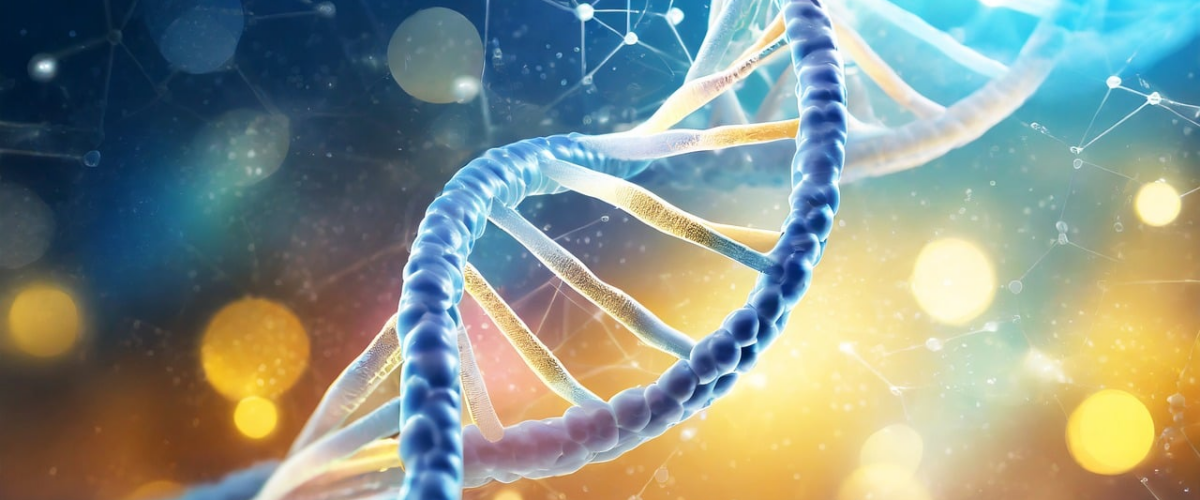
The evolution of the human body and its adaptation to milk consumption have actively contributed to the appearance of lactose intolerance and associated digestive disorders.
In other words, alactasia (or "lactose intolerance") is first and foremost a matter of genetics. Our team sheds light on the hereditary origins of this popular food intolerance.
What is the genetic origin of lactose intolerance?
In prehistoric times, the lactase gene was activated at birth and then deactivated at weaning. As a result, the body naturally stopped producing lactase, the enzyme responsible for the assimilation of lactose by the small intestine, from childhood onwards. So no adult was "lactose tolerant" at that time in history!
However, 10,000 years ago, certain regions of the Caucasus began to raise cattle and make milk a common, even daily, food. The bodies of the populations concerned then adapted to this consumption, continuing to produce the enzyme lactase into adulthood. Individuals became more or less 'tolerant' of lactose and passed on this tolerance to their descendants through genetic mutation.
Today, alactasia is true to the 'natural' norm in adults. It is considered that around 75% of the of the world's population is lactose intolerantincluding 5 million French people. In many cases, this food intolerance is hereditary.
Can lactose intolerance disappear?
While lactase activity peaks in the first few weeks of a baby's life, it gradually declines during childhood, until it reaches a residual level of around 5 to 10% in adulthood. While there is no 'standard' threshold for assimilating lactoseHowever, a moderate amount of lactose (up to 12g per day) is generally well tolerated, even in cases of lactose intolerance.
Those affected experience digestive discomfort of varying intensity when they consume milk and dairy products of animal origin.
This means that lactose intolerance becomes stronger over time, rather than lessening or disappearing altogether. Only certain treatments or medications can lead to temporary or permanent alactasia, depending on individual reactions. This is sometimes the case with prolonged use of antibiotics or chemotherapy. When linked to genetics, this food intolerance is irreversible.
To date, there is no cure capable of reactivating lactase production in lactose-intolerant people. However, dietary supplements formulated with lactase can be used to compensate for the lactose deficiency. lack of this enzyme in the body and significantly improve lactose digestion, so you can continue to eat dairy products on a daily basis. This oral supplement has proved its effectiveness for over 30 years.
At Lactolérance, for example, lactase supplementation is available in 3 food supplement references adapted to different needs and profiles:
- Lactolérance 4500 for moderate intolerance (22.5 g of digestible lactose)
- Lactolerance 9000 for severe intolerance (45 g of digestible lactose)
- Lactolerance 1Day for round-the-clock protection against the effects of alactasia
In particular, our Lactolerance 1Day formula, based on lactase-precursor probiotics, stands out for its ability to implant lactase-producing strains in the intestine, in other words to exceed the conventional protection limit of 1 hour. This is known as 'permanent' protection, despite the fact that there is no definitive treatment for alactasia on the market.
Visit our website to discover these supplements, which are immediately effective once taken. Thanks to them, you can consume lactose in various forms with complete peace of mind, for greater digestive comfort and a better quality of life.

Hello, I'm Vincent
Like you, I'm lactose intolerantI know exactly what you're going through and the difficulties you encounter on a daily basis. For over 10 years, I've been helping our customers to use our dietary supplements and giving advice and tips on how to improve their digestive comfort. I'm also a keen cook and gourmet, so you'll find my favourite recipes for a lactose-free diet in this blog.
Lactose intolerance is not inevitable! With LACTOLERANCE you can digest with complete peace of mind